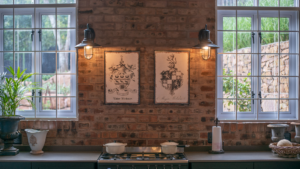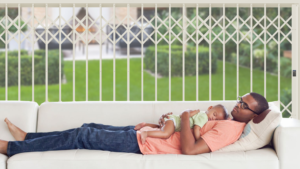When a window breaks, you know you need to replace it. If your car tyre is flat, it is apparent that you require a replacement. You know what to do if a doorknob falls off in your hand. But did you know you might need new locks more than once? We’ll unpack the four warning signs that you should upgrade your door locks.
Your home’s security is only as good as the locks on its doors. To protect your safety and privacy, you may need to change your locks over time or due to security situations. There are several ways to accomplish this, so if you’re considering replacing your house’s door locks, keep reading.
We’ll explain when it’s necessary and when a more straightforward, less expensive lock-changing method will suffice.
1. It does not latch or lock right
If your door hardware is broken – your toddler pulled the lever off the door, or you can’t get the key in or out of the deadbolt – it’s evident that it’s time to replace it. Sometimes we delude ourselves into thinking that things are fine as they are. Perhaps the deadbolt is a little stuck. Maybe it latches, but only if we tug on it and hold it closed while turning the key.
The problem could be with the door or frame in some of these instances. Rather than purchasing new hardware, experiment with modifications for when your lock does not fit your door. In other cases, upgrading to a better door knob or lever is the solution. The bolt may be stuck because it is made of inferior materials, and no amount of lubricant or repositioning will fix it. Again, choose tested hardware to avoid these pitfalls. A grade of A and the highest Durability certification indicate that the hardware will last.
2. You require security you can trust
Locks for your front door, and if we’re being honest, your back door and side entrance should protect what matters most. Check the following boxes on exterior deadbolts to help keep your home and family secure:
High quality: Door hardware that helps to protect your home should be made of high-quality materials rather than cheap materials . Look for design details that help protect against attacks, such as hammer impact, sawing, picking, and bumping. High-quality craftsmanship and improved security frequently go hand in hand.
Durability: You use your door hardware every day, multiple times, whether it’s an interior lever or an exterior deadbolt. It should withstand the test of time, still working and looking as good on Year 10 as it did on Day 1. We understand that life can be difficult in your home, so choose locks that will handle the pressure against everything from toddlers hanging on door knobs to Mother Nature’s impact.
3. You have gone through life-changing events
Your house should adapt to your lifestyle, not the other way around. Consider how your room usage changes from being a childless couple to having a newborn, then a toddler, then a teen, and finally back to being empty nesters. In each of those life stages, a room may require different door hardware. You may have desired the ability to lock the door to your home office, but what about now that it’s a child’s room? Perhaps not. Regarding door locks for toddlers, some parents believe it’s best to use a passage function, so their child doesn’t lock themselves in a room during a Terrible Twos stage.
For many people, becoming disabled is an unfortunate reality. It could happen to you as you get older, or it could be a deteriorating condition with someone who lives in or visits your home. Many locks are not designed for people with disabilities or limited mobility. Some people find it difficult to insert a key, turn it, and twist a door handle. Others may find it nearly impossible. Fortunately, there are simple solutions for handicapped access, such as door locks designed specifically for people with disabilities.
If your marital status has changed, new hardware may be in order. When families merge, new members of the household will require keys. This could be an excellent time to upgrade to electronic locks, especially if you’re worried about your children misplacing a spare key. They can come and go securely with their access codes while still feeling welcome in their new home. While it’s unpleasant to consider, changing the locks may put your mind at ease if someone has moved out.
4. You have recently moved
When you move into a new home, the first thing to do is change the locks on your doors. You never know who could have a key left over from the previous owners. Because you’re going to replace your locks anyway, pick appropriate ones for your home and family. Do you prefer a mechanical or electronic deadbolt? What should you pay for a lock? While budgets vary, consider the value of a high-quality lock that will keep your home safe. Even a more expensive deadbolt is cheaper than replacing stolen items. You’ll save money in the long run if you don’t have to repair or replace a subpar lock every few years.
Conclusion
The best solution is always to replace your door locks. Ensure the longevity of a new lock and that its quality will withstand anything a burglar can throw at it. Purchasing new locks complements redecorating schemes and gives visitors a bright, fresh glow as they approach your front door.



